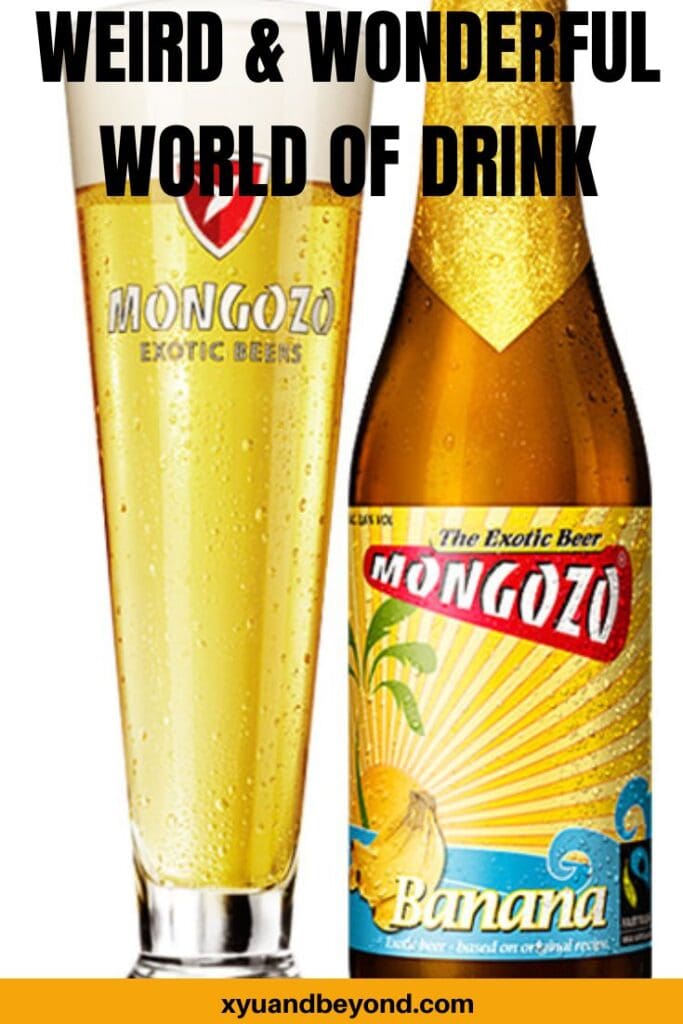World of Drinks – the weird and wonderful
As a food tourist, I often come across what we in the Western world might call ‘weird’ I like to call it the weird and wonderful world of drinks. I don’t particularly like alcohol just because the taste of booze is not one I enjoy. I admit I won’t turn down an ice-cold beer in the summer. But just like culinary tourism you can’t discount the world of drinks, like looking for craft beer, seeking out the organic wines of France, or sampling cocktails in a new country.
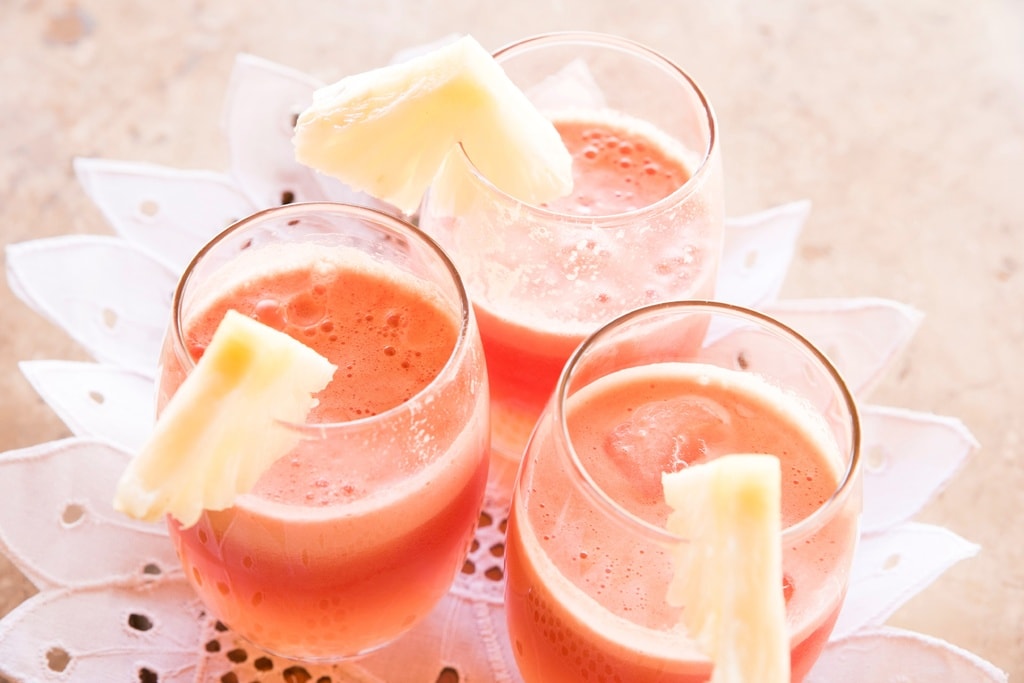
There are hundreds of cocktails and drinks to try around the world including tea rituals to coffee culture, but alcoholic drinks vary just as much and many are used in cultural rituals or festivals and celebrations. There is often a cultural significance to the drink and many evolved from their early medicinal uses.
So if you feel like exploring some adventurous wonderful weird drinks around the world here are 26 drinks of the world you can taste on your travels.
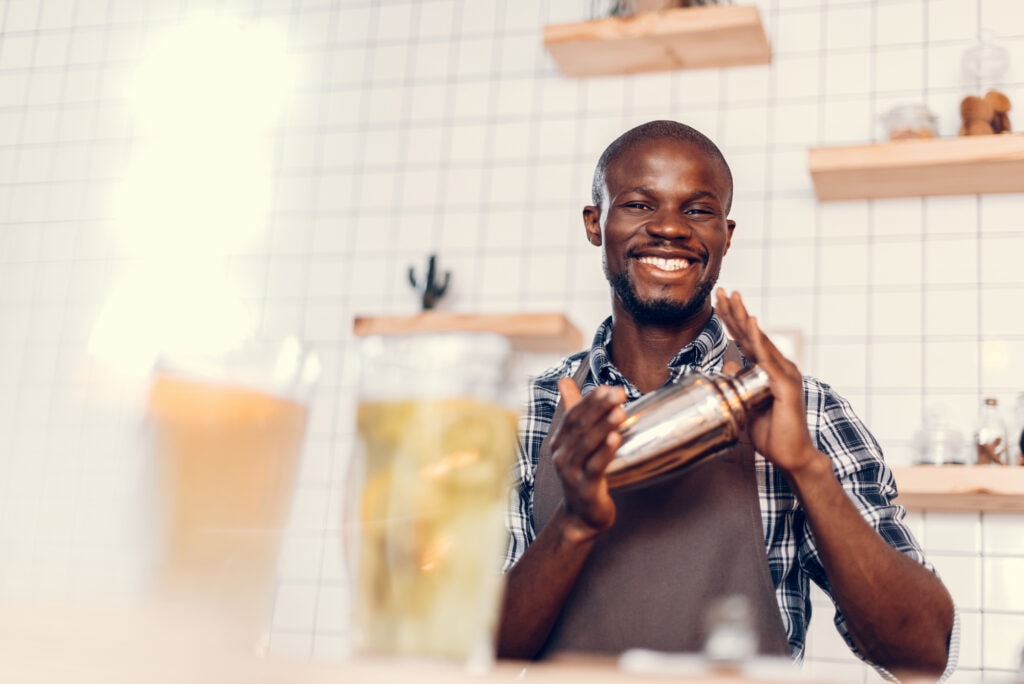
- World of Drinks – the weird and wonderful
- The World of Drinks
- Palm Wine – Nigeria
- Xtabentún – Yucatan Mexico
- Matsnaprtosh/ okroshka
- Marijuana Roots Liquor – Brazil
- Cow “Water”
- Arrack – Indonesia
- Rocky Mountain Oyster Stout – Colorado, USA
- Fog beer – Chile
- Banana Beer – Rwanda & Uganda
- Mate – Argentina
- Kvass – Russia
- Pulque – Mexico
- Kumis – Mongolia
- Bilk (Beer + Milk) – Japan
- Sinchicara – Ecuador
- Avocado beer – USA & Australia
- Snake wine – Asia
- Tatra Tea – Slovakia
- Tuna tears soju – South Korea
- Tongba – Nepal
- Ara/Arag – Tibet
- Chang – Tibet
- Chicha – Peru
- Boza – Bulgaria
- Jallab – Lebanon
- Mamajuana – Dominican Republic
- The Sourtoe – Dawson City, Canada
- Kava – Fiji
- The World of Drinks
The World of Drinks
Sometimes when travelling it is best to simply try drinks and food without knowing exactly what it is or what ingredients it contains. That way you have no preconceived notions about the flavour and you can decide if you like it or not. Here are 29 drinks from around the world for you to try.
Palm Wine – Nigeria
Palm wine, when fermented, is an alcoholic beverage created from the sap of various species of palm tree such as the palmyra, date palms and coconut palms. Palm wine is a sweet, milky, effervescent, and alcoholic beverage
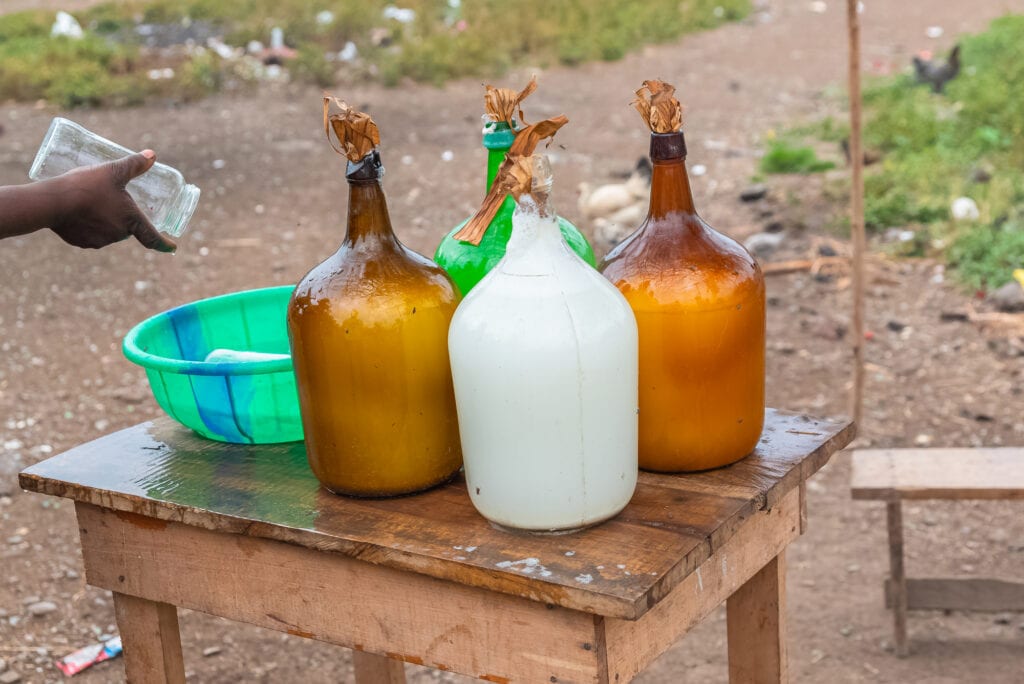
Xtabentún – Yucatan Mexico
Xtabentún is a traditional Mexican drink made in the Yucatan. This liqueur is made of rum, fermented honey and anise. Its name comes from the Mayan legend of two beautiful women: Xtabay, who had a good heart and Utz-Colel, who was cold and proud. When Xtabay passed away, her tomb was filled with aromatic flowers, which are the source of the honey that is fermented to make the liquor. Its name means “the vine that grows on stone” or “morning glory” the xtabentun flower, comes from its seeds, which have a psychotropic effect that can cause euphoria and sleepiness.
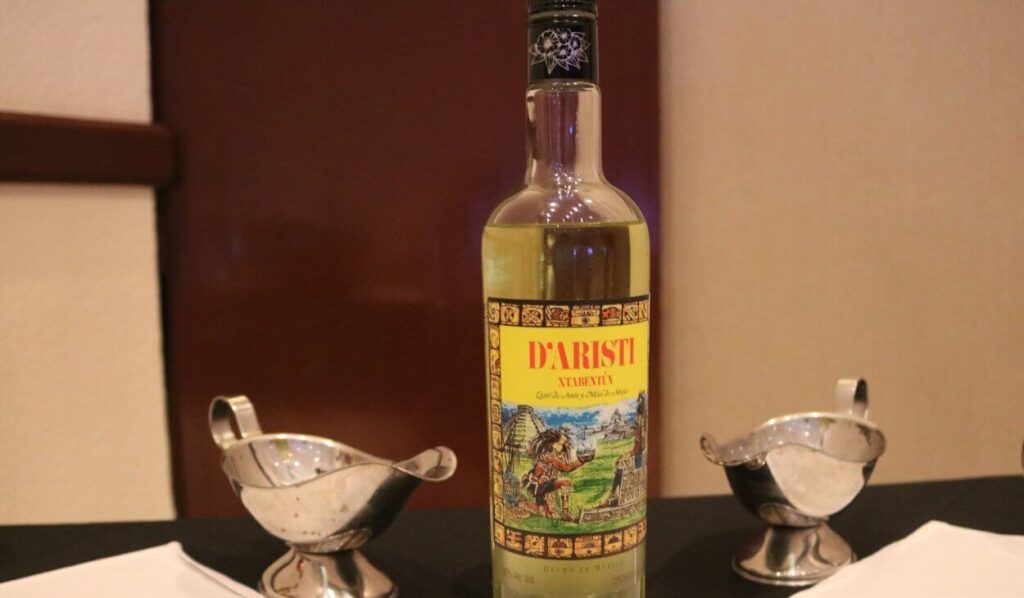
Matsnaprtosh/ okroshka
Matsnaprtosh is a traditional cold Armenian drink that uses matsun (cold fermented milk) combined with cucumbers and dill with salt and other herbs that are diluted with water and served in a glass.
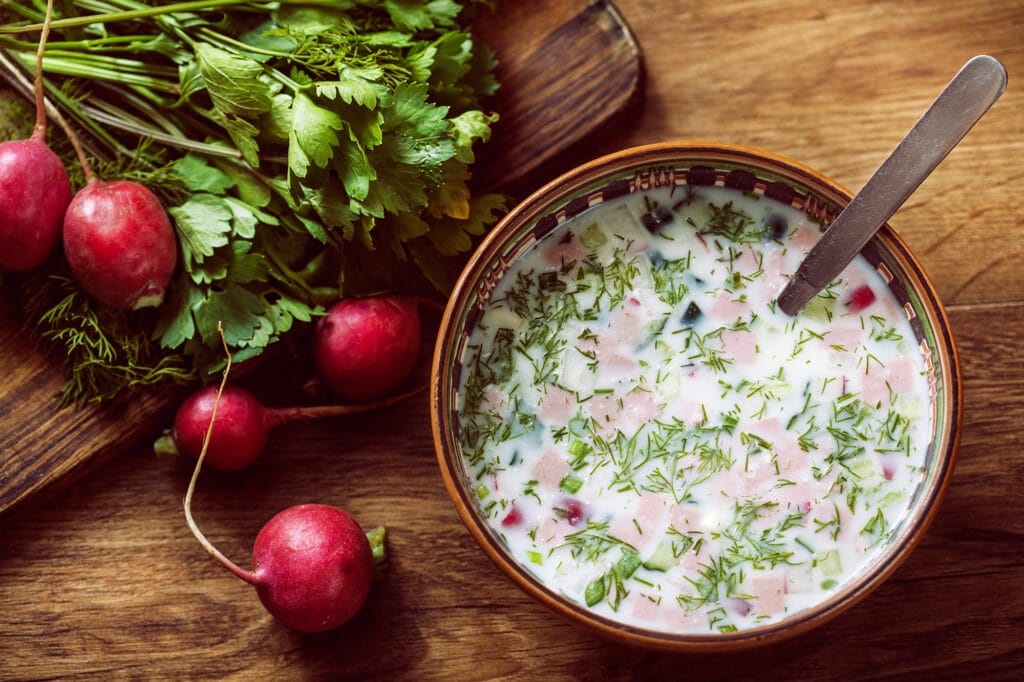
Tepache – Pineapple Beer – Mexico
We first tried Tepache from a plastic bag on our travels through the Mexican Yucatan. It may be called beer but its alcoholic content sits at around 2%. It is incredibly tasty and refreshing in the heat of the Yucatan though. The beer is made from pineapple pulp and skins fermented with piloncillo an unrefined sugar. Sugar is added along with spices such as cinnamon and cloves and left to ferment over 4 days.
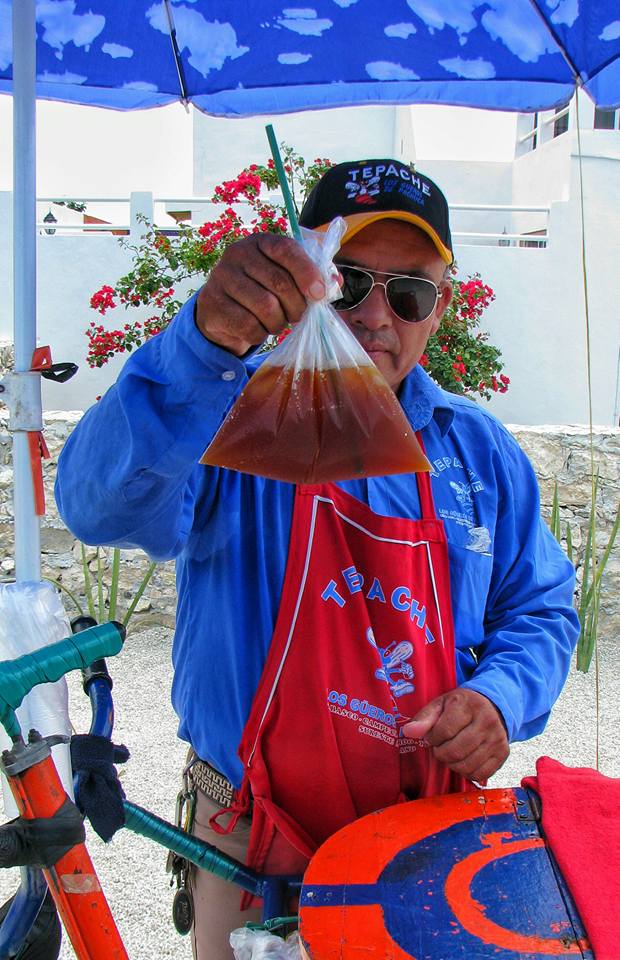
Marijuana Roots Liquor – Brazil
“Pituconha” is a take on cachaca, the sugar-cane alcohol used in caipirinhas, the famed Brazilian cocktail. Its name is a play on Pitu, one of the best-known cachaca brands, and “maconha,” the Portuguese word for cannabis.
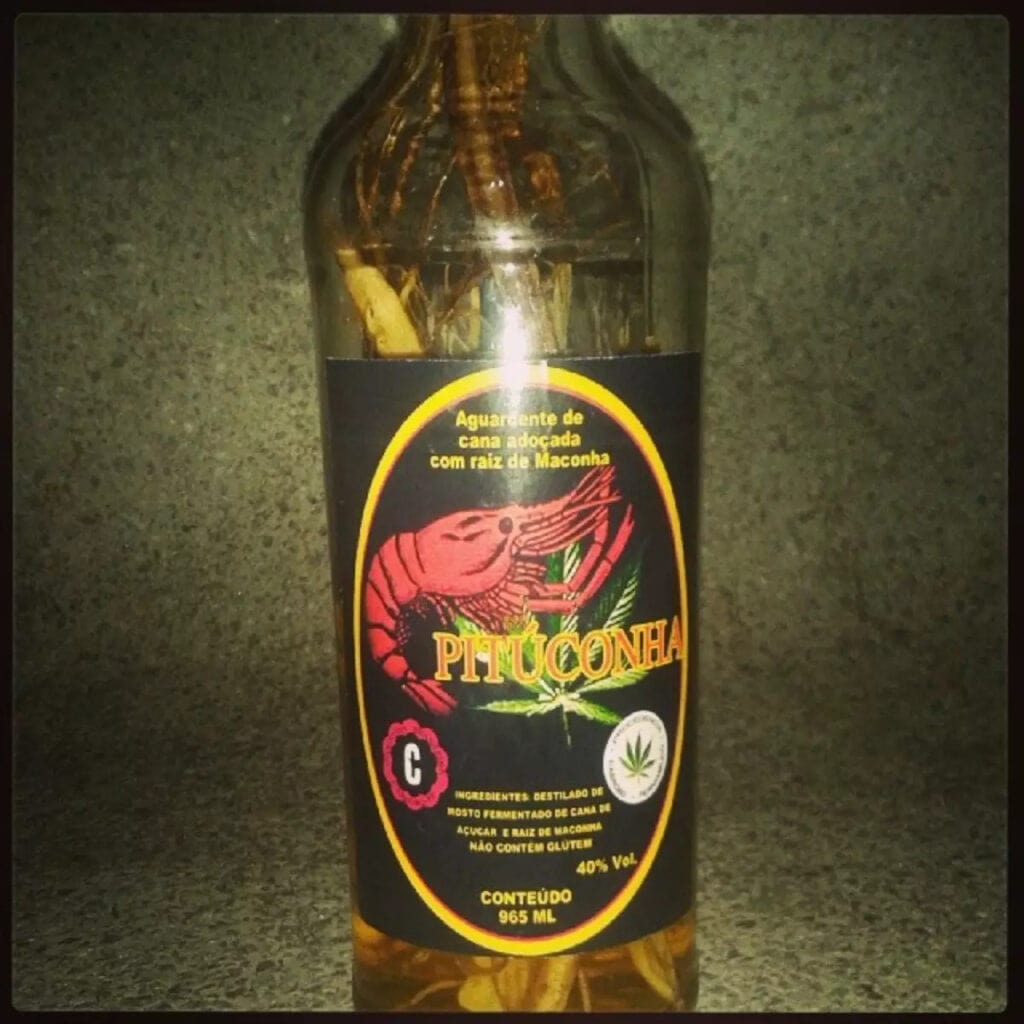
Cow “Water”
For a long time, Hindus have worshipped cows for their life-sustaining dairy products, but Ayurvedic tradition also claims that cow urine can be used to cure ailments ranging from liver complaints to diabetes and cancer. This definitely falls into the category of weirdest drinks around the world – and one I am not ever going to try.
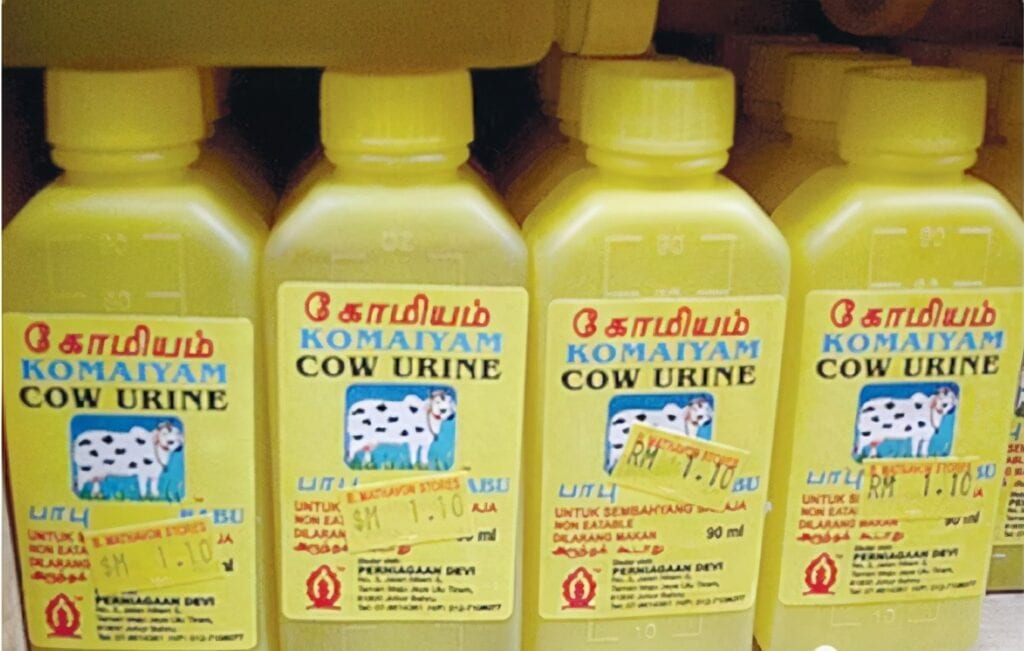
Arrack – Indonesia
Arrack is a traditional Indonesian alcoholic drink. When you mix Cobra blood and bile with it, it turns into a medicinal drink that helps with respiratory problems, increasing stamina and sex drive, mostly in men.
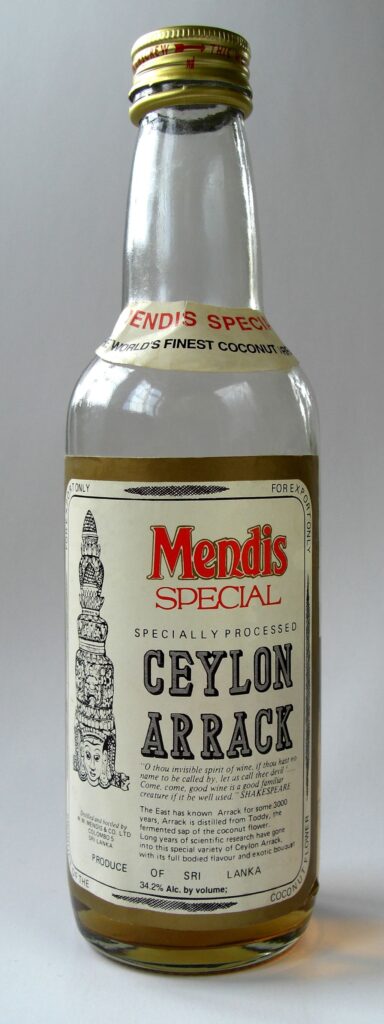
Rocky Mountain Oyster Stout – Colorado, USA
Rocky Mountain Oyster Stout is made with Colorado base malts, roasted barley, seven speciality malts, Styrian Goldings hops, and 25 pounds of freshly sliced and roasted bull testicles.
The brewery states Rocky Mountain Oyster Stout is a stout with a rich brown/black colour, a luscious mouthfeel and deep flavours of chocolate, espresso and nuts. The beer sports a savoury, umami-like note and a roasty dry finish.
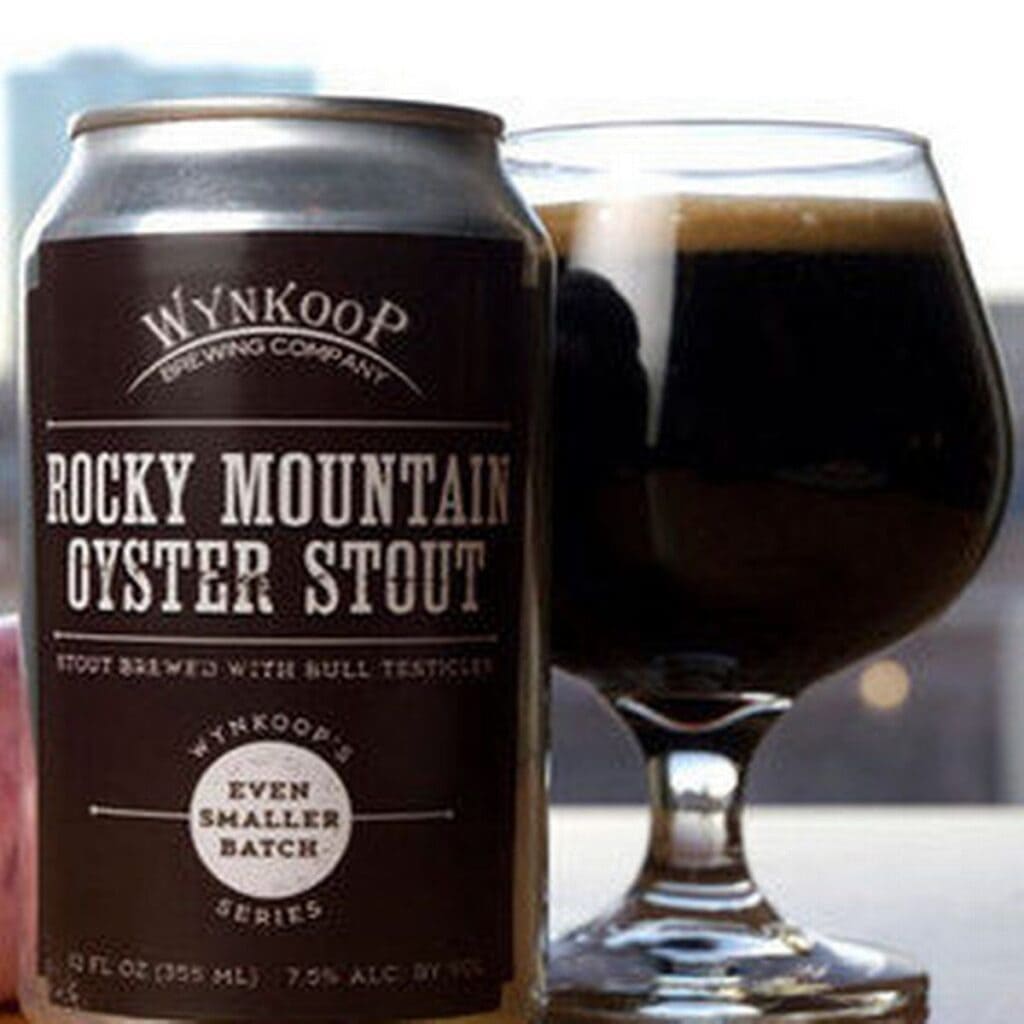
Fog beer – Chile
Chile’s Atacama Desert is one of the driest places on the planet; some parts haven’t seen rainfall for centuries. But the region is often shrouded in a dense fog locally called camanchaca. This fog is being harvested through simple fog nets which capture the moisture from the air and then use it to brew beer. The beer–a golden-amber Scottish ale with brown foam has a unique taste according to the brewer.
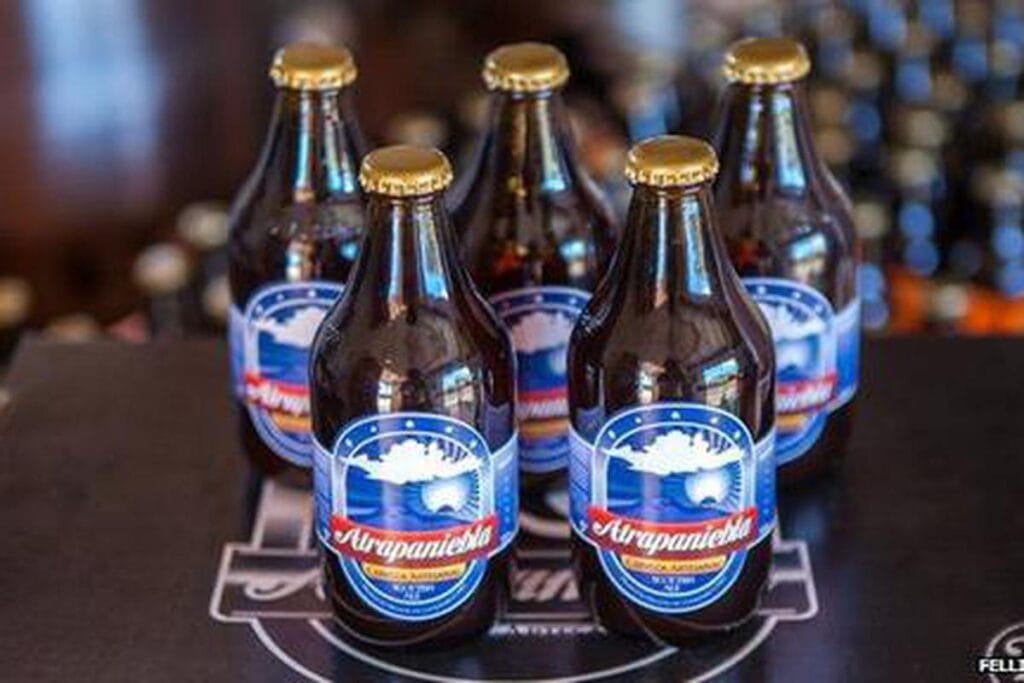
Banana Beer – Rwanda & Uganda
Banana beer is an East African staple and made dominantly in Rwanda as bananas are so plentiful. The bananas are peeled, kneaded, juiced, filtered, and diluted. Next, wild yeast is added to the mixture in the form of millet, maize, or sorghum. Banana beer is also a very traditional drink in Uganda and must be served at weddings, rites of passage, cultural rituals and other celebrations.
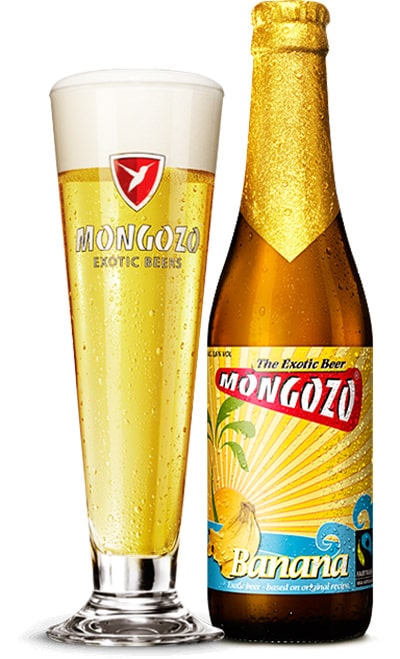
Mate – Argentina
Mate also known as chimarrão or cimarrón, is a traditional South American caffeine-rich infused drink. In Argentina, the mate is the container from which the “tea” is drunk. This caffeine-rich infused drink is made from dried leaves called yerba mate mixed with hot water.
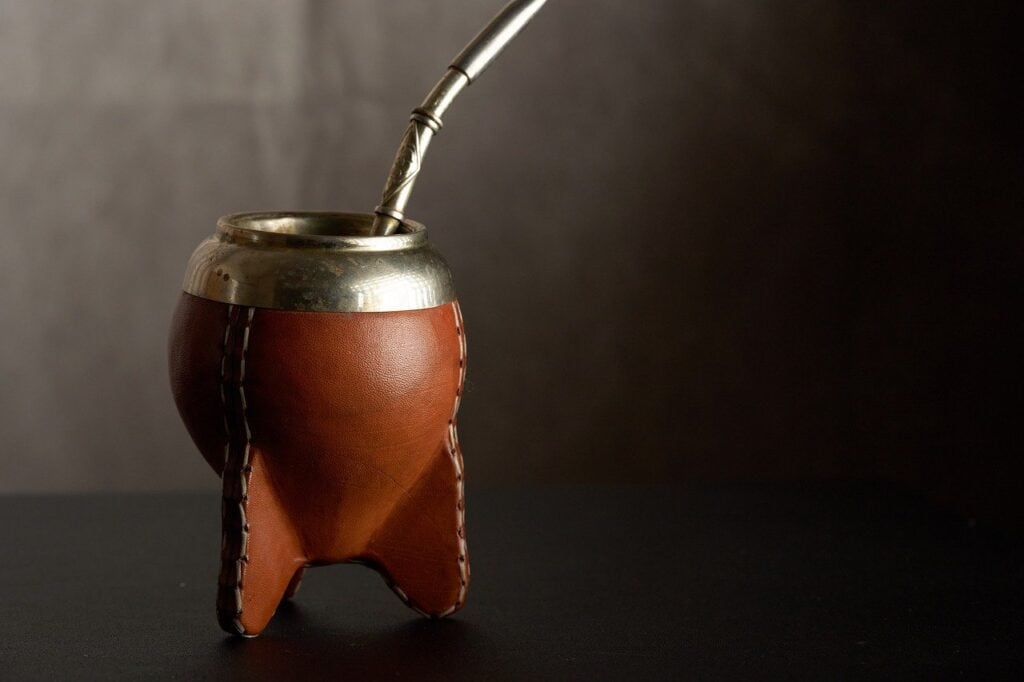
It is then drunk through a metal straw (traditionally silver) known in Argentina as a Bombilla but can sometimes have a different name depending on what country you’re in.
Kvass – Russia
This Russian drink, commonly consumed during summer, consists of fermented black or rye bread. Kvass has been very popular in Russia and the former Soviet Union; consumption has increased due to massive advertising stressing its benefits for health. Kvass is a slightly sweet and slightly bitter drink that bites your tongue a bit due to carbonation, with a small amount of alcohol.
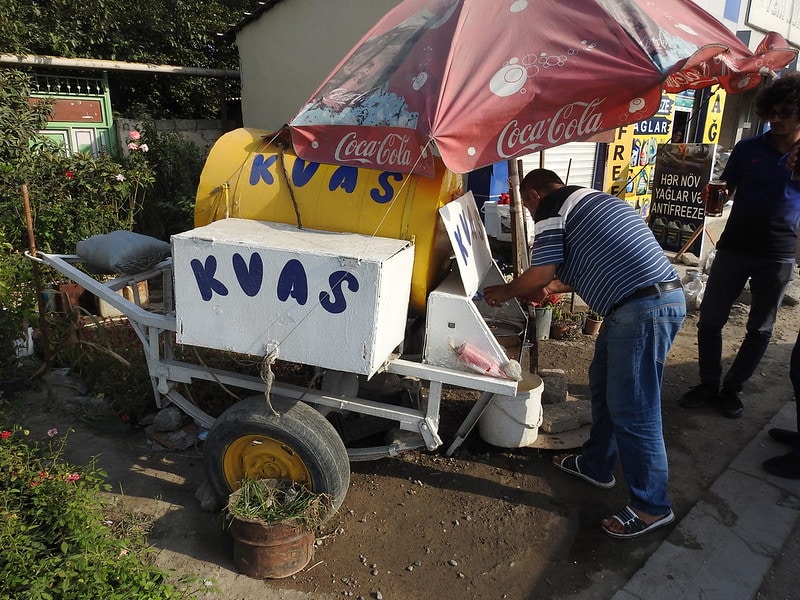
Pulque – Mexico
Pulque is a traditional Mexican alcoholic beverage produced from the fermentation of the fresh sap known as aguamiel (mead) extracted from several species of Agave (maguey) plants that grow in the Central Mexico plateau.
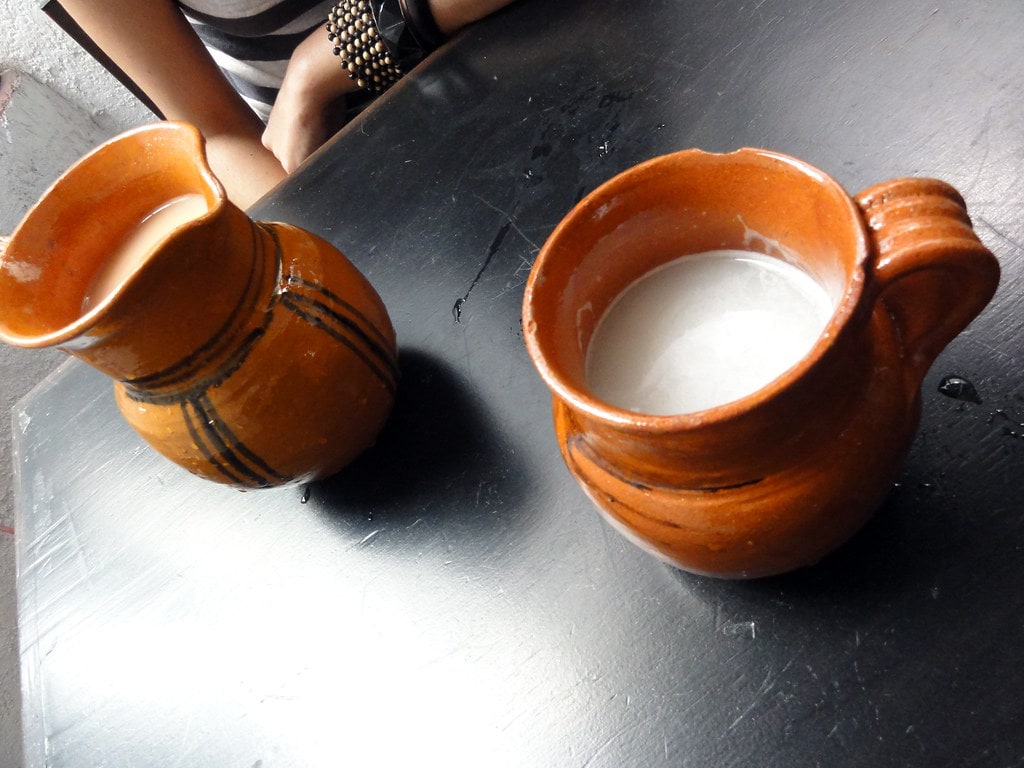
Kumis – Mongolia
Kumis is a traditional Asian drink made of a mare’s milk. Its taste is quite similar to Kefir, but a bit stronger. To taste the original Kumis, you must drink it from the locals instead of buying it in a bottle since cow milk is usually used for industrial-scale production.
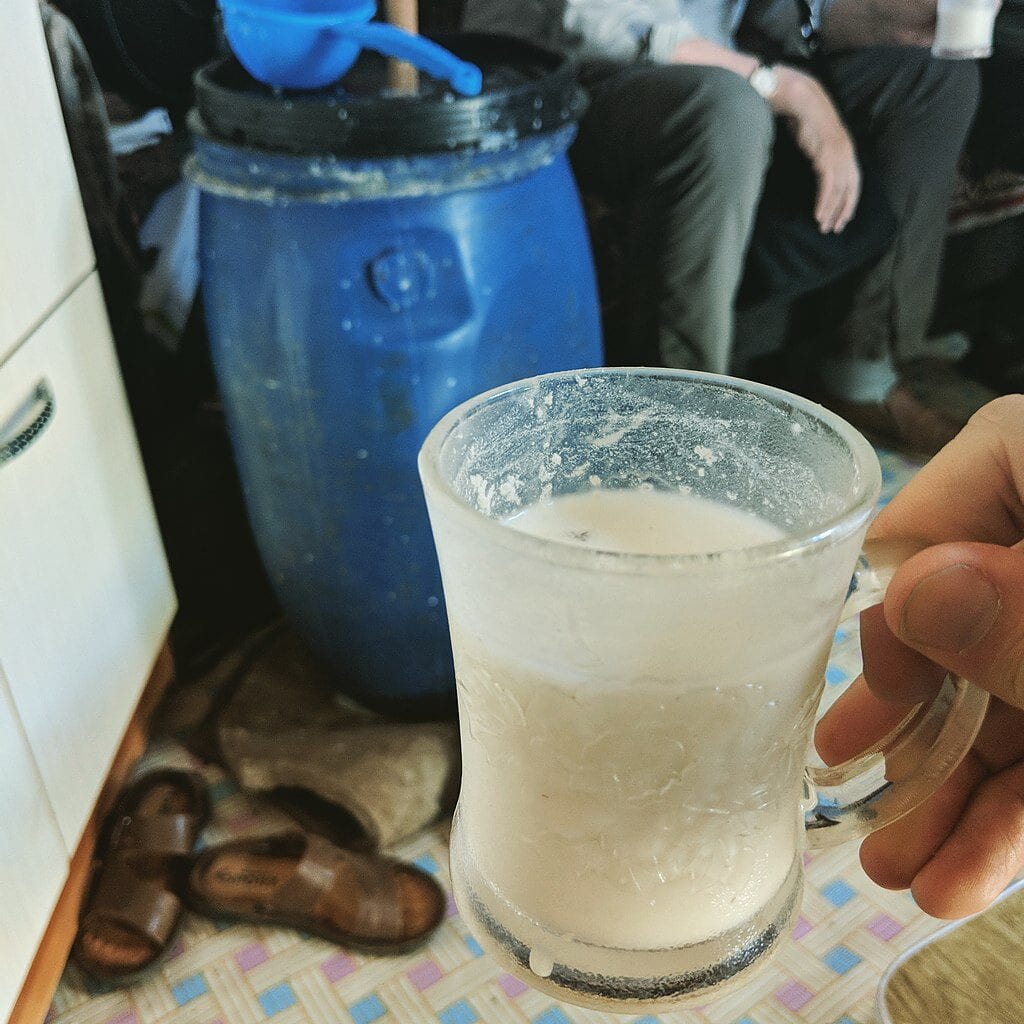
Bilk (Beer + Milk) – Japan
Compared to the previous drinks, Bilk sounds quite normal, even if it combines 2 ingredients that are naturally completely different. This drink is being produced by a Japanese brewery called Abishiri, which sells it in beer bottles. Based on a few descriptions, Bilk has a fruity taste.
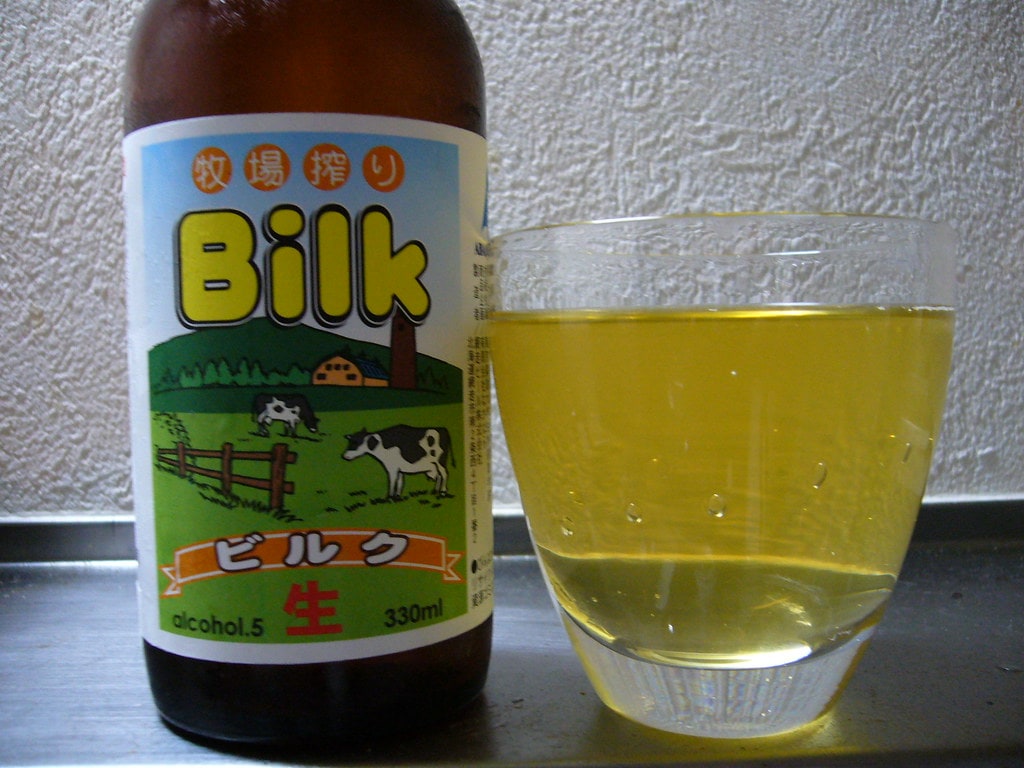
Sinchicara – Ecuador
Sinchicara is northeastern Ecuadorian cane alcohol that is fused with the bark of indigenous rainforest plants and is unique to this region. It is served as an alcoholic drink but is also recommended as cold medicine or to help with arthritis.
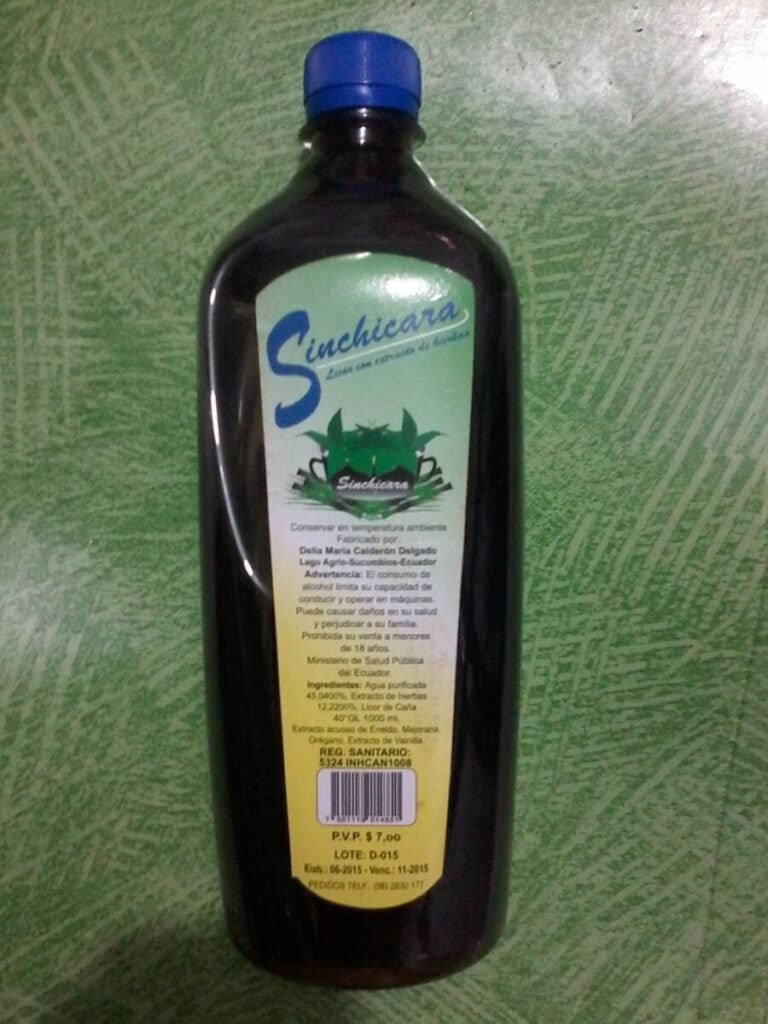
Avocado beer – USA & Australia
Found in both LA and Australia Avocado beer is made with avocados, honey, cilantro and lime juice. Not generally available year-round it is made in both countries for Avocado Festivals.
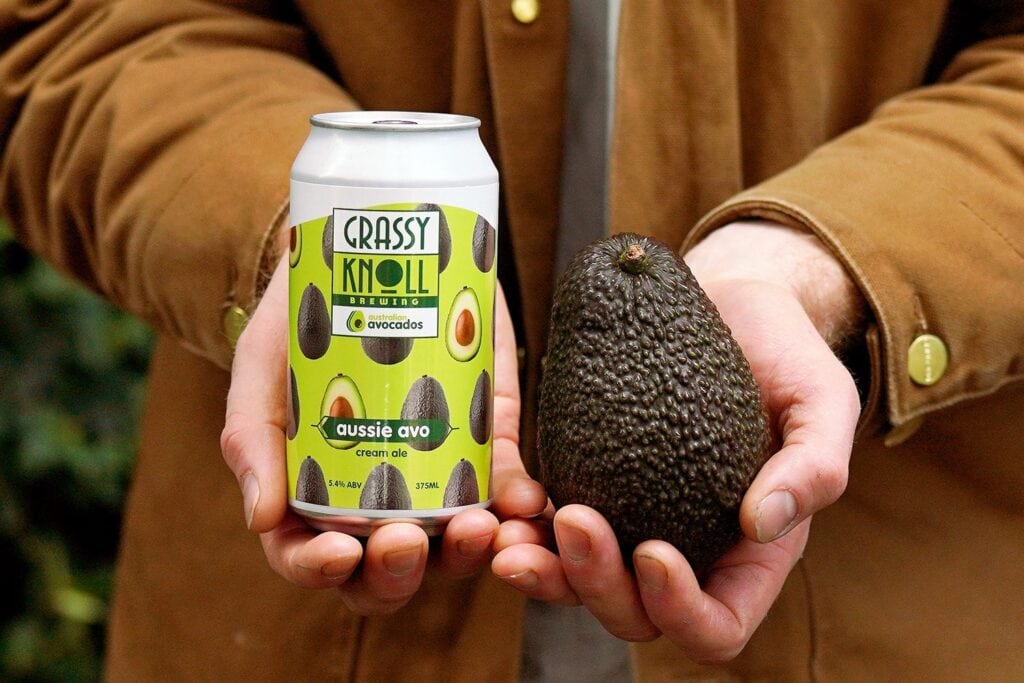
Snake wine – Asia
In Asia, it is quite popular for liquor stores to sell rice wine that contains snakes. The snakes get pickled while inside the wine and leave their unique flavour. When in Okinawa Anthony Bourdain drank this concoction and said it was the most revolting thing on Earth.
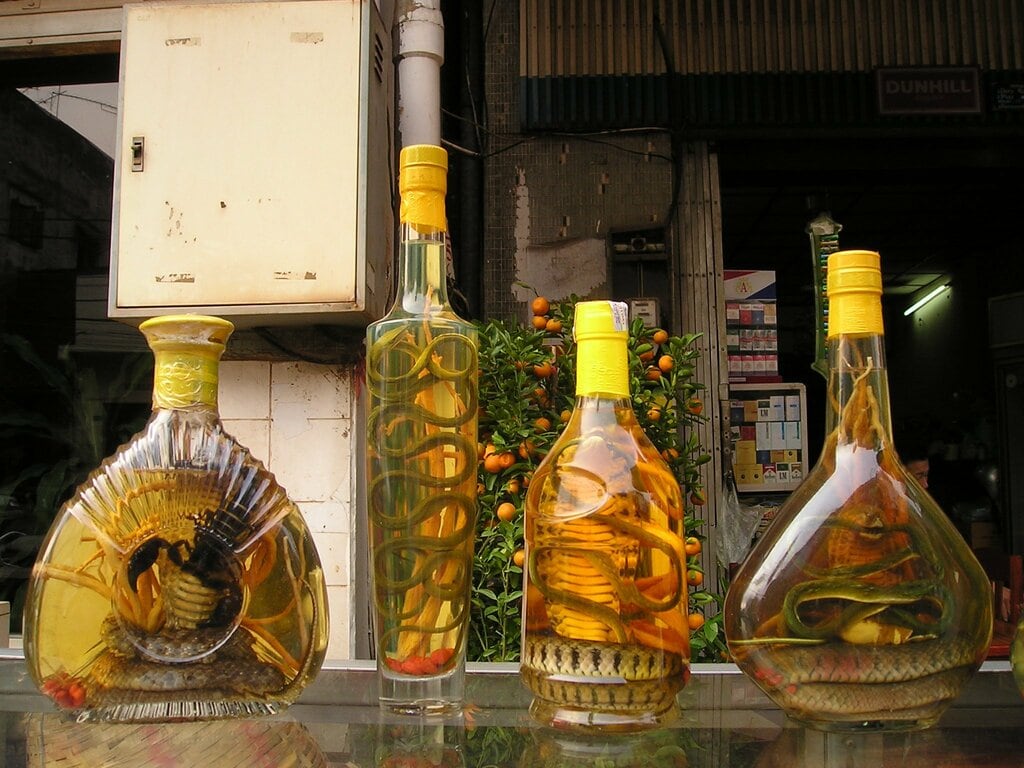
Tatra Tea – Slovakia
Tatra tea is a national Slovak alcoholic drink based on tea. Once hot alcoholic infusions on herbs saved the inhabitants of mountainous regions from cold and colds. The classic liqueur has a rich taste with hints of tea and honey and can be served both cold and hot.
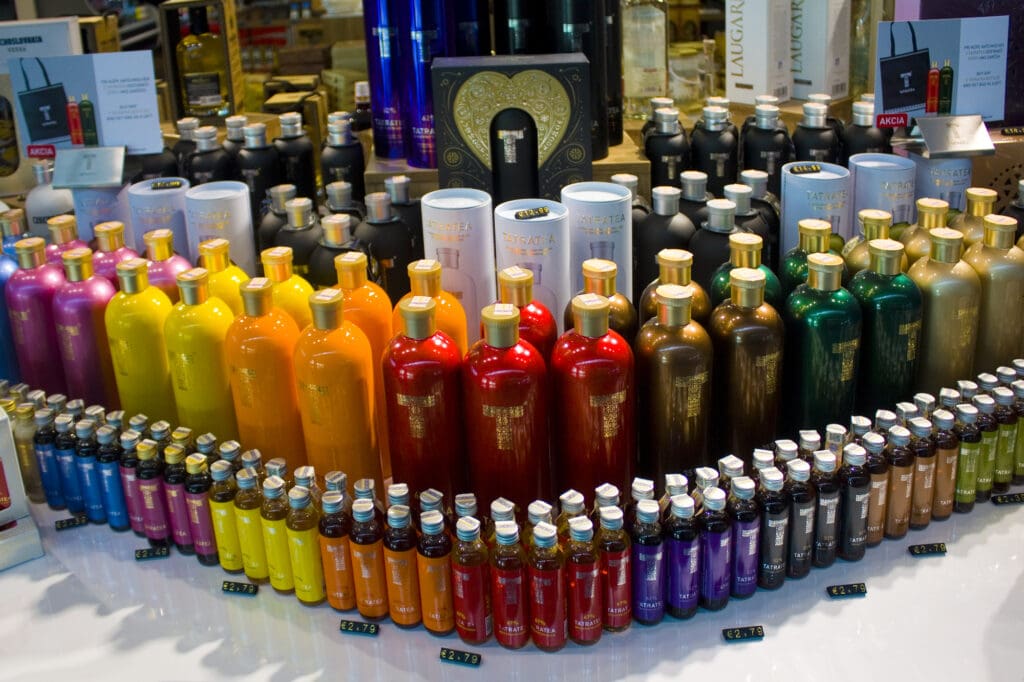
Tuna tears soju – South Korea
Tuna Tears is made with Soju, which is a high alcohol rice wine. There are many flavours of Soju but Tuna Tears are served in seafood restaurants called “tuna houses”. The rice wine is mixed with fluid from the tuna’s eye and downed like a shot. You can just imagine the jelly-like texture sliding down your throat.
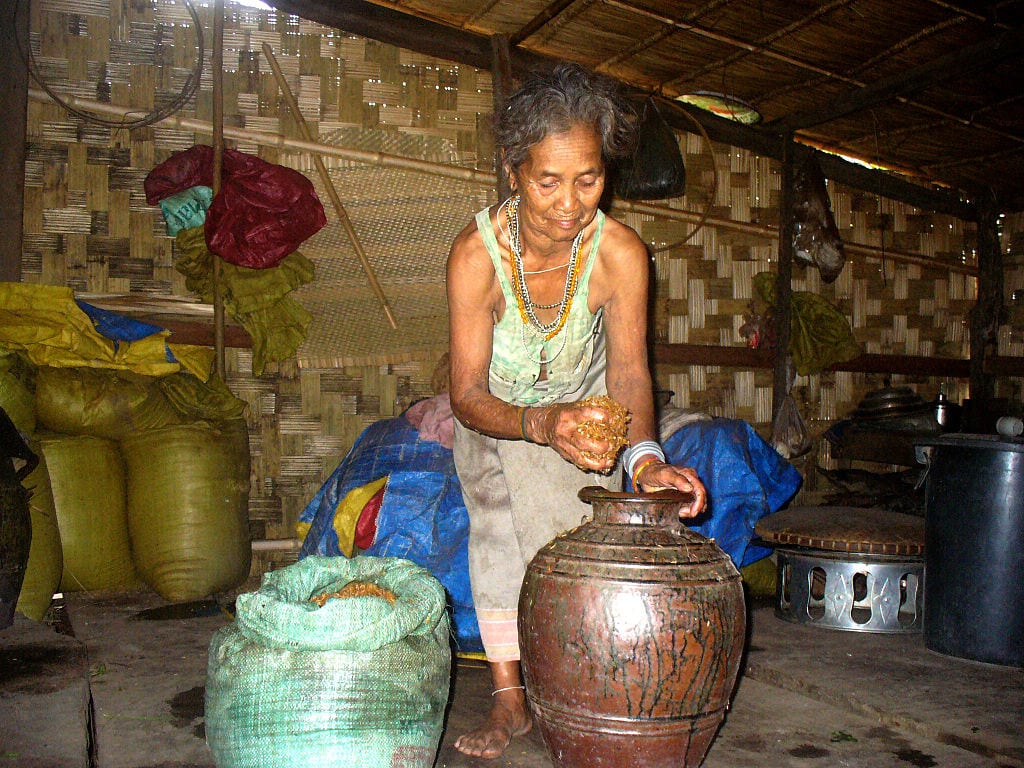
Tongba – Nepal
Tongba is a millet-based alcoholic beverage found in the eastern mountainous region of Nepal and the neighbouring Darjeeling and Sikkim. It is the traditional and indigenous drink of the Limbu, Yakkha, Rai, Sunuwar, Lepcha, Sherpa, and many other ethnic groups of eastern Nepal.
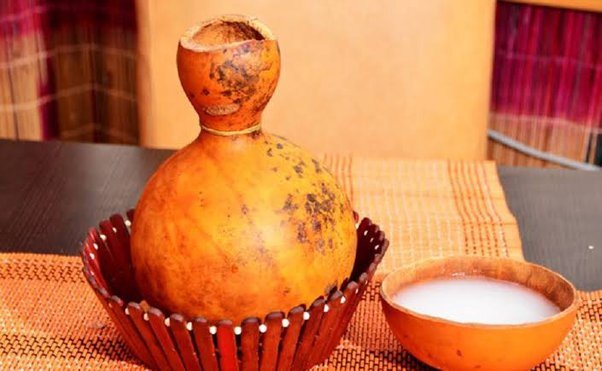
Tongba is made by a process of fermenting whole grain millet, which can take a few weeks. When it’s ready to drink, it’s typically served in a barrel-like cup, also known as a tongba.
Ara/Arag – Tibet
Ara or Arag is a traditional alcoholic beverage consumed in Bhutan. Ara is made from native high-altitude tolerant barley, rice, maize, millet, or wheat, and may be either fermented or distilled.
Chang – Tibet
Chang (also Chong or “Qiang”) is a kind of wine with very low alcohol content made from highland barley. To some extent, it is like beer. Always served on festive occasions Chang is coloured orange or yellow and has a sweet and sour taste.
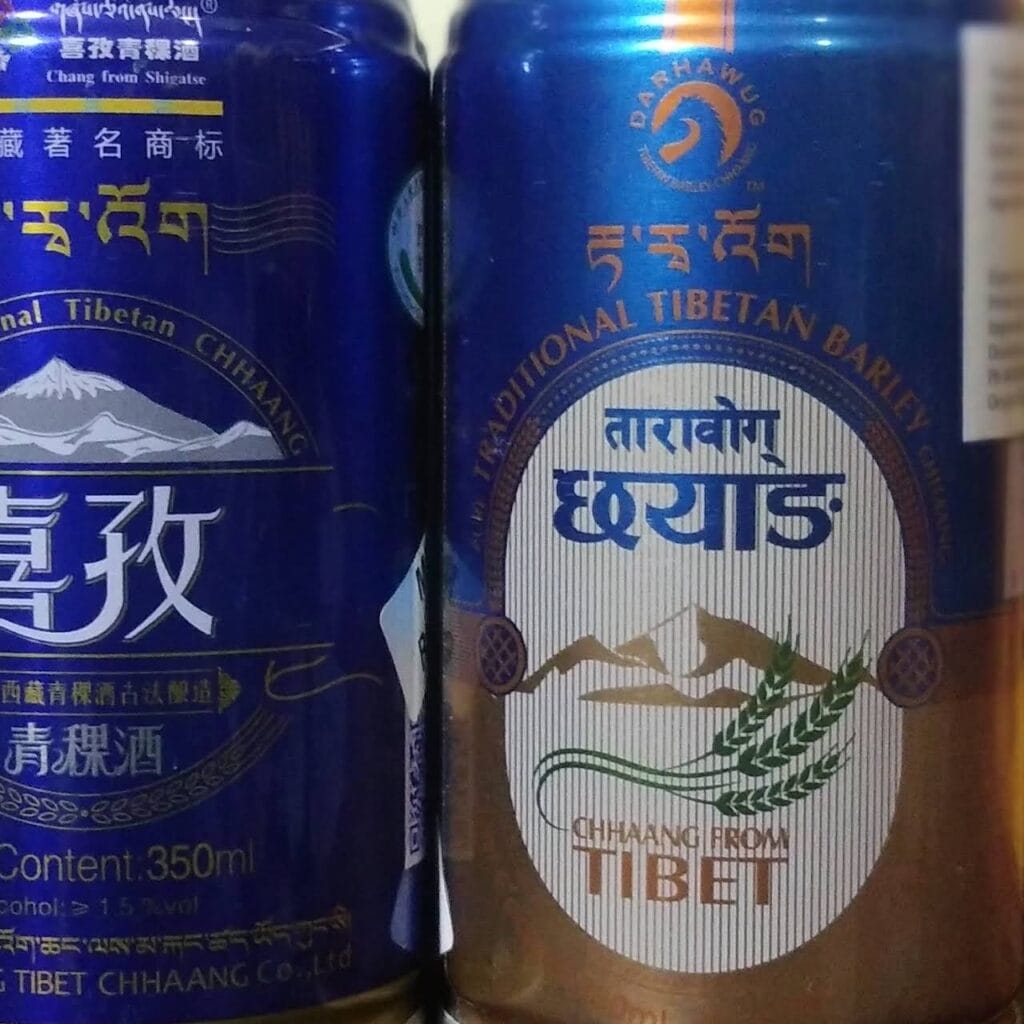
Chicha – Peru
Chicha is an ancient drink in the Andes. Some of the earliest versions of chicha drinks are thought to have come from the Kuna, an indigenous group that lives in Panama and Colombia. “Chicha” is thought to come from the Kuna word chichab, meaning corn.
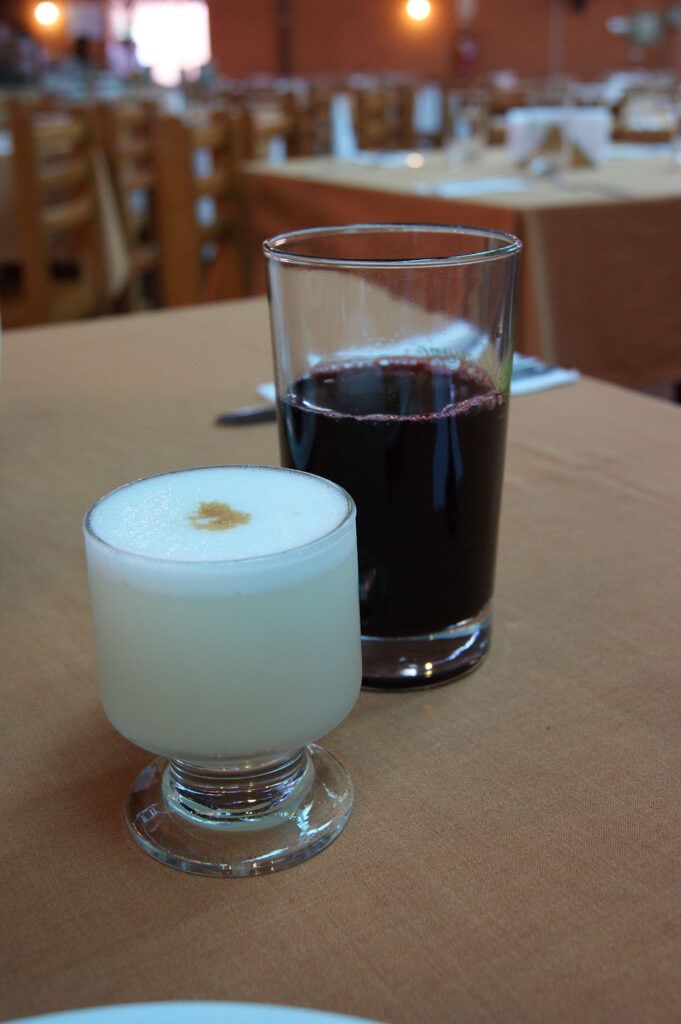
Chicha de Jora is the one that historically includes saliva. The process is a lot like beer, but the chicha maker chews the corn which kickstarts the fermentation process. Chicha” does not refer to one specific drink, but rather a family of drinks comprised of a few popular favourites along with numerous local variations. The two most well-known types of chicha are called chicha de Jora, a fermented type made with a special type of yellow maize called Jora, and chicha Morada, a non-fermented type made with purple maize.
Boza – Bulgaria
Boza is made from fermenting boiled flour which gives it a small alcoholic content. Because it has probiotics in the mix it is considered very healthy for pregnant women. You can find it in most grocery stores in Bulgaria.
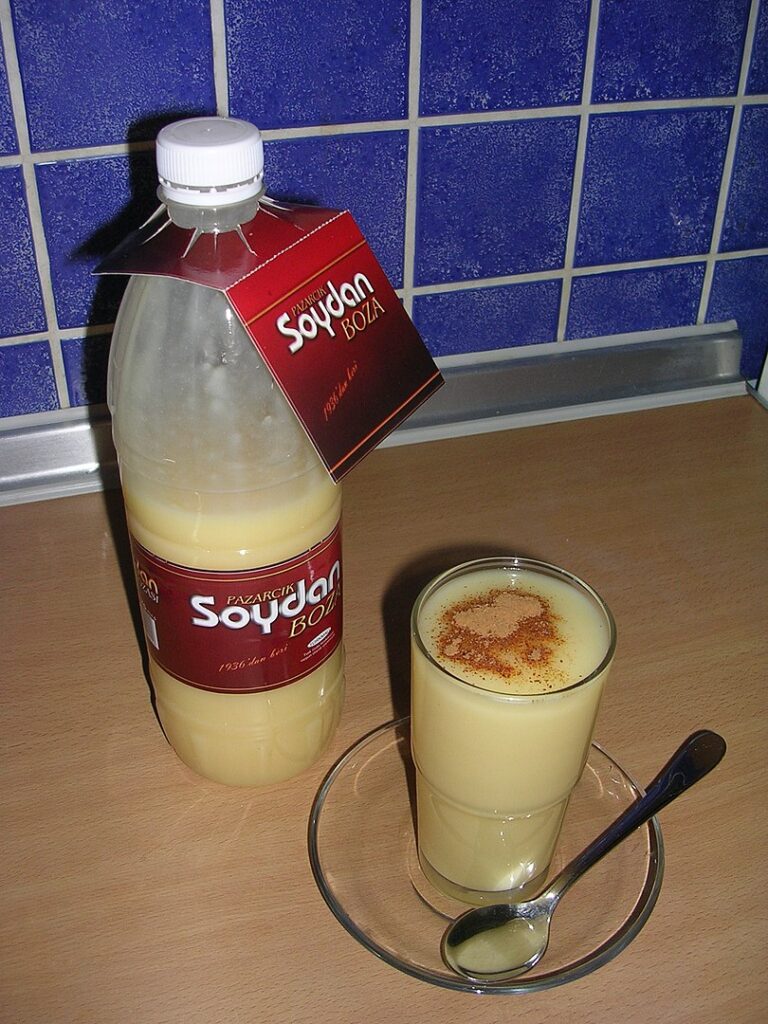
Jallab – Lebanon
Jallab is a syrup made from rose water, date and grape molasses and carob. Jallab syrup is commonly used in refreshing jallab tea – which is like an English Pimms but no alcohol. To make Jallab tea, the jallab syrup is diluted with ice and water and then flavoured with almonds, pine nuts, and raisins which soften as they soak up the jallab tea.
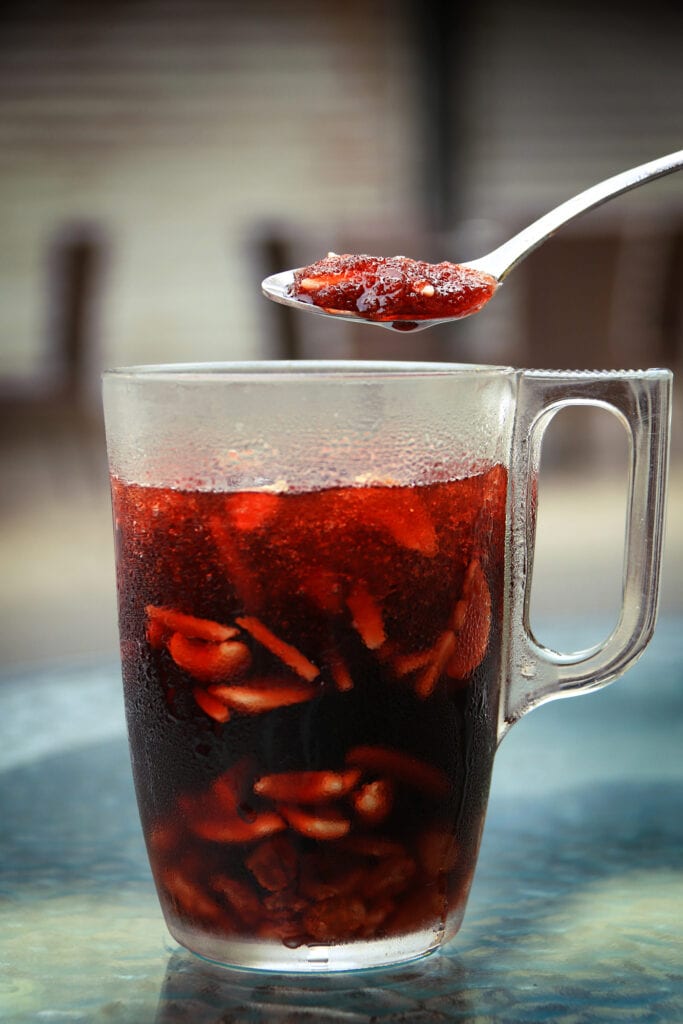
Mamajuana – Dominican Republic
The national drink of the Dominican Republic Mamajuana is made from bark which has honey, rum and red wine poured onto it. Usually, this is made at home and every family has a recipe. Mama Juana was created to be a herbal medicine that apart from acting as an aphrodisiac could rid you of the flu, aid digestion and circulation, and cleanse the blood, liver and kidneys.
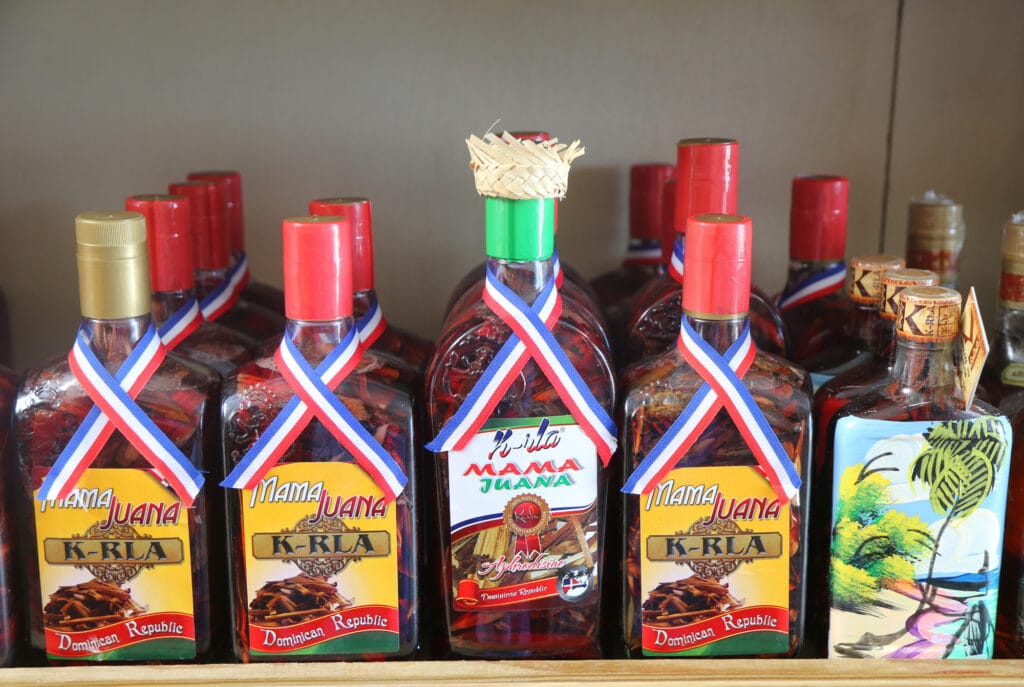
The Sourtoe – Dawson City, Canada
Canadian legends say that when a rum runner lost his toe to frostbite he kept it in a jar in his cabin. Years later when the toe turned up it was used to serve brave drinkers in the Downtown Hotel of Dawson City. This particular bar patented and copyrighted the idea and apparently, you have to drink the shot and let the toe touch your lips.
The Sourtoe Cocktail recipe is simple: “1 ounce (minimum) of alcohol, 1 dehydrated toe, garnish with courage,” according to the website.
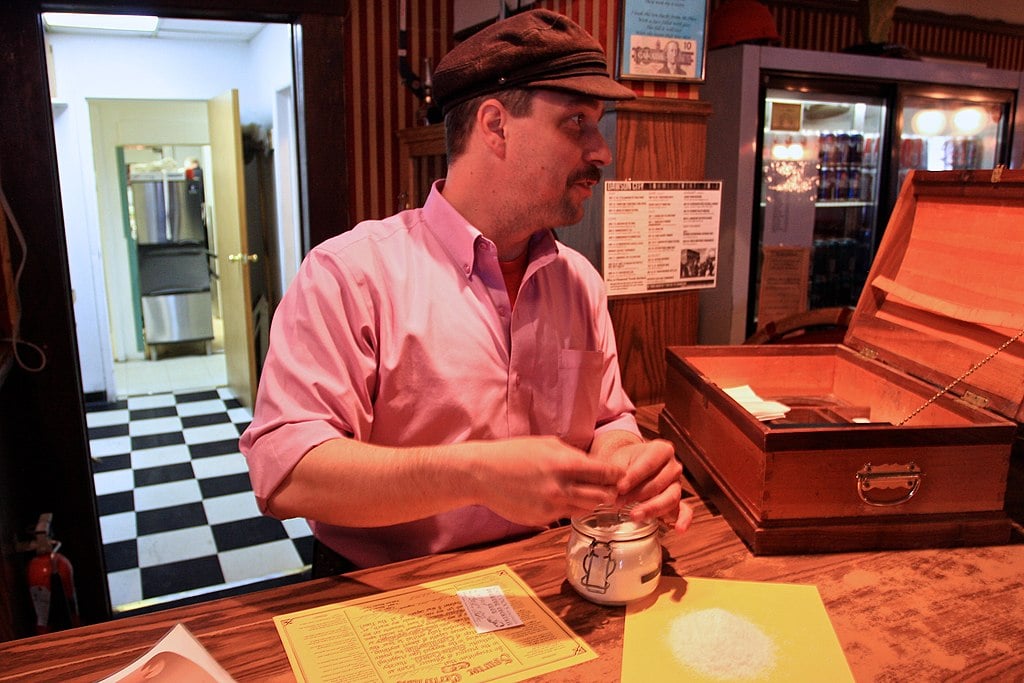
You first pay for your shot of choice, then pay an extra $6 ($8 CAD) to one of the “Toe Captains,” the servers who administer the toe-filled drinks and go over the rules: You must let the toe hit your lips but no biting, chewing or putting the toe in your mouth is allowed. Swallowing the toe will also land you with a fine of about $1,900. Apparently, there are over 100,000 brave souls who have joined the Sourtoe Club.
Kava – Fiji
You cannot leave Fiji until you have taken part in a traditional Kava ceremony so pick up a kava root at the market as well. Kava is a traditional drink and ceremony that is considered a welcome to the area or village. Kava is made from the pepper plant; the root is powdered and mixed with water.
It is mildly narcotic and has a gritty somewhat bitter taste. Drinking kava will numb your lips and tongue and leave you quite relaxed but cognizant of your surroundings. There is etiquette to a kava ceremony that should be followed.
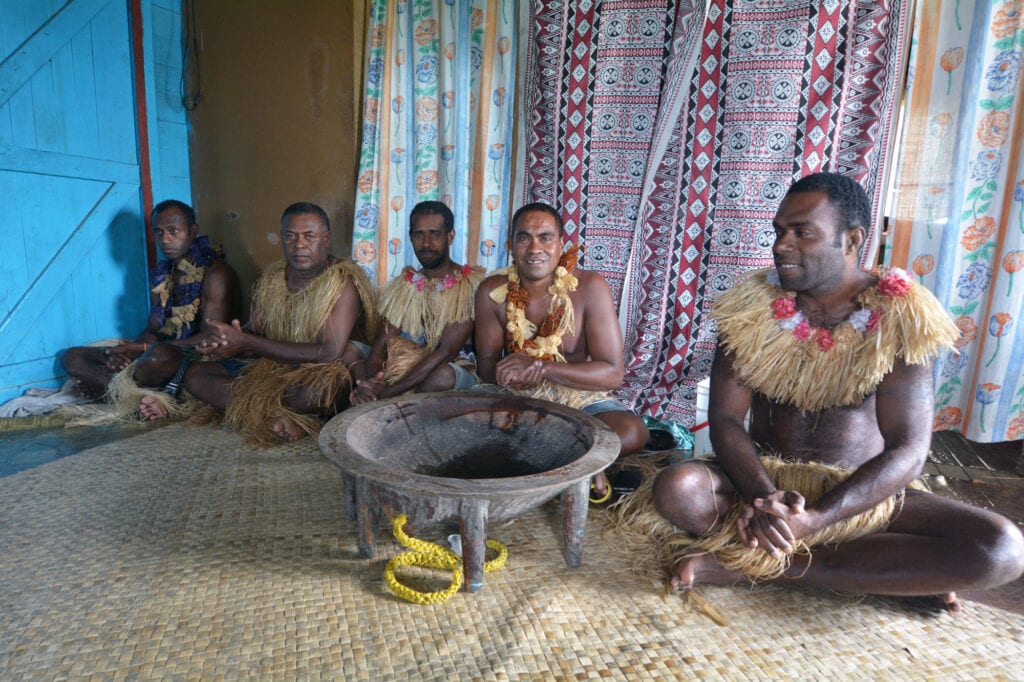
First, both men and women must be dressed modestly and you should always bring a gift of kava root. Watch the other participants closely and follow the lead of your guide. Drinking of the kava is taken in turns of importance to the village. When it is your turn you will be offered high tide which is a full cup or low tide, half a cup. Clap once with a cupped hand and yell Bula and make sure you take the Kava drink in one gulp, then clap three times and shout Mathe.
So there you have it 25 of the weirdest drinks around the world, there are probably a lot more so if you know of one please mention it in the comments and I’ll add it to my list of the weirdest drinks around the world.
You may also like
UNESCO Intangible Cultural Heritage – food
The ultimate guide to coffee around the world – 33 coffee traditions and rituals
Weird American food – 32 dishes to try
25 Traditional Welsh food dishes
Indigenous foods around the world
Irish distilleries – 23 tours and tastes
Pin it to save it
